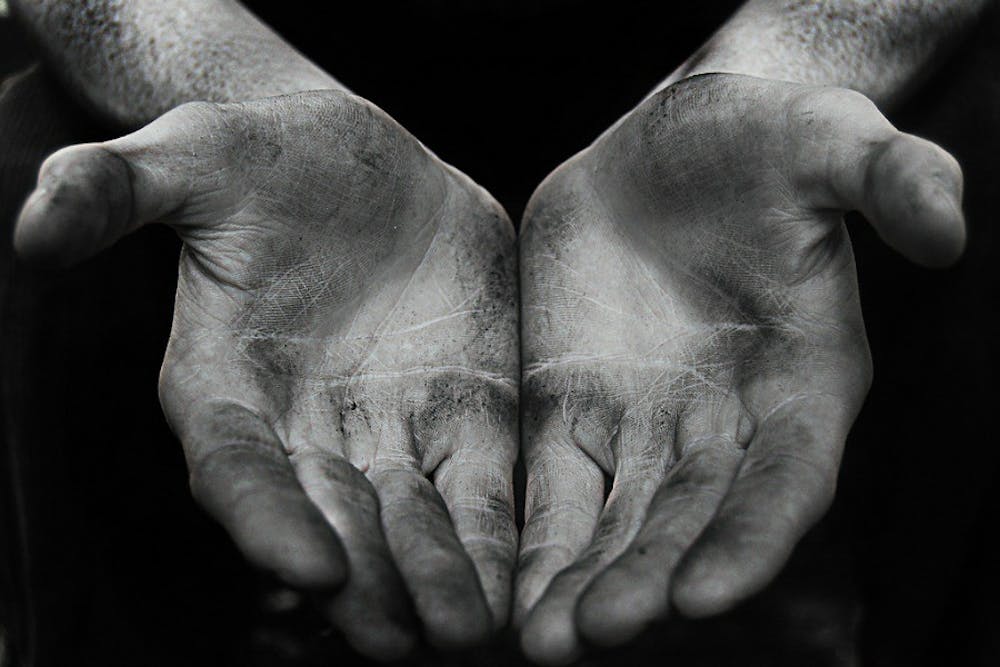By Glenn Muschert, Guest Column
Have you ever wanted to change the world around you - to make it a better place? So many students tell me they are aware and distressed by the large-scale problems we see every day in the news: endless war, violence in our homes and communities, discrimination of all forms, degradation of the environment and the embarrassing persistence of poverty at home and abroad, to name a few.
Is it any wonder we get overwhelmed in the face of these large-scale challenges to human life, as none of us wields sufficient influence to fix these problems ourselves? However, in recognizing that none of us can wield sufficient power to solve global problems, we run the risk of ignoring that we do indeed wield modest influence and therefore have some power to change the world around us.
It is vitally important we do not devalue small acts of kindness and consideration.
Without ignoring the persistence of large-scale problems, let's turn our attention toward the type of small acts that can make a difference in our local environments (that is, in our living spaces, our classrooms and on the streets and sidewalks of our community). Let's concentrate on the capacity each one of us holds to maintain civility, respect and a spirit of cooperation toward others.
Understand that you, of course, need to take care of your own needs, but that others are also engaged in parallel efforts. Therefore, acknowledge in your actions that there are others who also need to make their way in the world. We share this university and community environment not only for our own benefit, but also for the benefit of others.
In the spirit of nurturing civility in our environment, I offer the following list of actions, which, if undertaken by enough members of the university community, have the potential to transform our environment in quite positive ways.
Acknowledge the presence of other people. Simply say hello and goodbye to people you encounter in your everyday life. Even a nod will suffice and is infinitely more affirming than staring at your mobile screen.
Don't text while walking. Pay attention to where you are walking because there are others who are trying to use the walkways too. You have no right to walk around distracted, so either put down the phone or step aside.
Quit complaining. Small inconveniences, delays, aches, discomforts and frustrations are just part of life. What matters is how you respond to these. Rather than getting irritated when one of these inevitably pops up, take control of your own emotional state and decide that you will let it roll off your back.
Leave things the way you found them (or better). Others may use items, spaces and resources after us. Since we share resources, it is important that we acknowledge the rights of others to use shared items, spaces, etc. Put things away properly and make sure they are clean and maintained.
Stop criticizing. You have no right to criticize anyone else, even if done silently in your head. No one made you the judge of others, so don't do it. Bottom line is you don't really know where the other person is coming from, so why judge them? Just let them be.
Enjoy what you're reading?
Signup for our newsletter
Respect differences. Other people may have different appearances, points of view, beliefs and experiences. Understand that maintaining your right to your own point of view also implies that you recognize that others have the same right, even if you disagree with them.
Stop using hateful language. There is no justification for using hateful speech (such as racist, misogynistic, homophobic, xenophobic or other discriminatory terms). Similarly, there is little justification for foul language. Please just clean up your speech, because nobody benefits from filth and hate.
Don't talk when others are talking. Like it or not, side conversations in class or elsewhere send the message of disrespect to the speaker and those who would like to listen. A person has two ears and one mouth, so maybe we should listen at least twice as often as we speak.
Dispose of trash properly. Each of us is responsible for cleaning up personal space, and it's selfish to expect others to pick up after you. Why should we expect others to clean up after us when we use public space?
Be polite. Remember that each of us was taught to use common consideration in our speech such as, "please," "thank you," "no thanks," "you're welcome," "excuse me," etc. We all already know how to use these.
Hold doors for others, when appropriate. In our busy community, you probably aren't going to be the only person entering and exiting buildings. Have some consideration for those who go after you.
Use turn signals. You are not the only person using the road, and it is only fair that you indicate your intent to those with whom you share the road.
Wait for a green light or the walk signal. It is only fair that others have a turn to use intersections. You will get your fair chance, so please wait.
As a corollary to the above, it should also be clear that motorists should yield to pedestrians in designated crosswalks. It's only fair that if motorists want folks to stop jaywalking, then the motorists should in fact stop for folks who are crossing as designated.
Transforming our university and community environment into one emphasizing courtesy and consideration can go a long way.
Thank you for your time.




